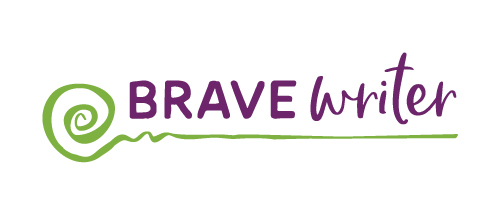Welcome to "Tea with Julie," a weekly missive by me, Julie Bogart. My wish is to give you food for thought over a cup of tea to enhance your life as an educator, parent, and awesome adult. Glad you're here. Pinkies up!
P.S. Was this email forwarded to you? Add yourself to the list and get your own!
Cincinnati, November 6, 2021
Hi Friend,
Years ago, I had a near-chocolate experience—that is, I was stressed and nearly needed chocolate. I clicked the “send” key and my newly completed synthesis paper for my Master’s in theology zipped away in a cloud of cyber dust. Destination? Professor/advisor. His task? To find the gaffes, flaws in logic, unsubstantiated claims, mistakes in organization, syntactical errors, and poorly developed ideas.
When I received back my 32 pages with professorial commentary, I ripped open the envelope holding the draft with relish (I ripped the envelope with relish, ergo, enjoyment; I did not rip the envelope holding the draft, garnished with the condiment relish, ahem… that’s the kind of editing work I do well… I digress).
My professor had myriad corrections to offer me. As I read each one, I thought about why I was enjoying his feedback versus times when I’ve felt utterly deflated by editorial critique. (And there have been those times in my writing career.)
A few thoughts percolated to the surface and I thought they were worth sharing.
- My professor and I had the same goals. The professor and I had a bargain. I did the research, writing, and revising. He offered the supportive, yet critical feedback that would help me get my paper into shape so that I would graduate. The paper in particular was not about a grade. It was about earning the final seal of approval for my Master’s degree. I knew that he knew what I needed to do to earn the degree. As a result, I viewed his feedback as support for the achievement of my goal, not as criticism of my efforts.
- His feedback was specifically about upgrading the quality of the writing, not invalidating my insights, ideas, or conclusions. He and I dialogued all along the way as I worked on the paper and topic. In those conversations, he helped to guide the development of my ideas and he affirmed the insights I shared. As a result, when I submitted my paper, I already knew that he and I had a similar vision.
- He smiled a lot. Let me tell you how much that helped in reading his feedback. I could picture his smiling face.
- He gave positive feedback first – and not in a canned way. He expressed concrete and specific reasons why he liked my paper which let me know which parts resonated with him, showed him something new, offered a well-articulated position. Those positive comments helped me view his critical ones as an effort to elevate the whole to the level of the parts he validated.
- He considered the topic I was writing about important. That meant he gave feedback in the context of believing in the meaning of my writing, not just affirming the quality of how it was written. That made me feel as if we were having a conversation about ideas rather than my writing something for his approval or disapproval. I cared about those ideas and he cared to interact with me about them.
As I thought about Brave Writer and what we hope to do for our kids, I thought about Dr. Gollar’s useful and wise feedback.
Can we adopt some of his tactics?
- Can we have the same goals as our kids when they write? If they want to write a thank you note, can the goal be to help our kids write it so that the grandparent feels thanked? Can we foster an atmosphere where the writing a child does (a story, a report, a written narration) is valued for the purpose of the writing rather than as a checkbox on our list of homeschool tasks?
- Can we talk to our kids about the topics for writing? Even outside of the “writing times”? Can we let them know that the things they care about matter to us and we think their perspective on the topic is uniquely interesting to us?
- Can we give specific positive feedback first? Find that powerful verb, that insightful description, that clever turn of phrase. Notice it!
- Can we believe in the importance of the ideas themselves? Will we care about the meaning more than the writing, initially?
Yes, we can.
And let’s smile a lot.
Let’s let our kids know that we enjoy their company, believe in their ideas, care about their success.
Warmly,

P.S. Catch up on all the “Tea with Julie” emails here!
Julie Bogart
© 2021 Brave Writer LLC™
help@bravewriter.com

.